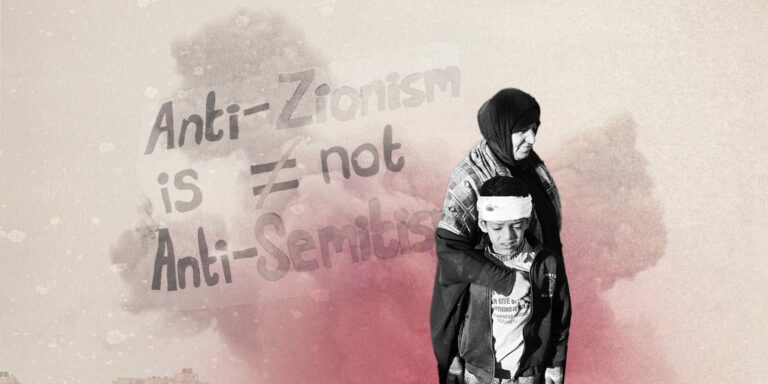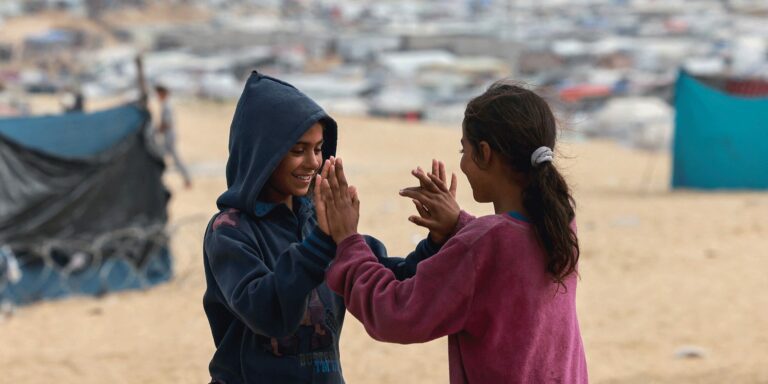“One of the child victims dared to speak, uncovering the network,” a Lebanese judicial source told Daraj as they described the story of the gang that “lures children and minors through TikTok with the purpose of raping them and blackmailing their families.”
The investigation is still in its first stages, and a prominent judicial source confirmed to Daraj that the investigations are still ongoing, with arrests still not over yet. According to the source, “a number of the victims were being lured to a number of residential apartments, most prominently in Zekrit, a town in Mount Lebanon.” The source also pointed out that one of the minors “was raped for 7 years while working for one of the lawyers.”
The case has somewhat become the only public topic of conversation in Lebanon. The leaks uncovered a network involving a number of individuals involved in crimes of rape and blackmailing minors, then luring them through social media platforms, particularly through TikTok, where many of the accused are active.
The statement issued by the General Directorate of Internal Security Forces indicated that security forces began following up on the case about a month ago, after a number of victims filed allegations with the Public Prosecution regarding “their exposure to sexual assault and photography by members of the organized gang, in addition to being forced to use drugs.”
The security forces were able to arrest 6 members of this gang, and new information pointed to the arrest of a new accused individual, M.S.D.. His arrest was confirmed to Daraj by a security source, his identity not specified. Daraj was also told that “work is underway to arrest more individuals suspected to be involved in the crime, likely amounting to more than thirty to forty individuals involved.”
The security forces’ statement came after the news of the arrest of the sixth individual, J.M., a hairdresser and the owner of Hair Zone salon in Sabtieh, spread across social media. According to the circulated information, J.M. played a prominent role in this gang.
A number of journalists and activists took on the task of following up on the details related to the case, and publishing the remaining names of those arrested according to security forces, which also include 3 minors, of multiple nationalities: Lebanese, Syrian, and Turkish.
Details were also leaked of how victims were lured with the accused using fictitious names, enticing them with meals or clothes, and inviting them to parties in chalets. They then proceeded to drug them, forcing them to perform sexual acts, photographing them, and threatening to expose them and publish the videos if they do not respond to the gang’s demands, or if they informed any party of what is happening.
The leaks also revealed that some victims were sent outside Lebanon at the request of the attackers. Local media also indicated that during the investigation, J.M. admitted his involvement in the case, and thus he was no longer a suspect, but rather formally accused.
The security source, who preferred to remain anonymous, confirmed the accuracy of the information circulating about Judge Ghada Aoun issuing a memorandum instructing the judicial police to officially communicate with TikTok to suspend the accounts of all those involved in the case, whether those who were arrested or those who are hidden from sight.
Protecting Victims is a Priority
Investigations are still ongoing, and the number of victims has not yet been announced. Yet, this list will not be exhaustive, as there are many who refrain from claiming or disclosing that they have been victims of this network.
Within this context, Amira Sukkar, President of the Union Society for the Protection of Juveniles, told Daraj that “work is underway to follow up on the minors psychologically, and to reach out to the victims who were revealed during the investigations, through the analysis of evidence, and those outside the file in its legal context, and ensuring the necessary care for them.”
The gang targeted victims between the ages of 14 and 17, and the security source denied that there were nine-year-old children among them, as was rumored. This stage is particularly when teenagers (mostly boys) begin to get out of constant parental supervision, whether on social networking sites or social life.
Family protection specialist Rana Ghannawi told Daraj that the responsibility of parents in similar cases is to monitor the content that their children watch, follow up with those who communicate on social networking sites, and educate the child about the meanings of assault, luring, and blackmail, and about the virtual world , in which relationships are no longer reliable and real.
“The teenager must realize that an invitation from a stranger to a chalet, hotel, or evening party, or the presence of incomprehensible interest from an adult, is a suspicious matter, which helps protect the child from falling victim to a similar lure,” Ghannawi added.
TikTok Is But a Tool, So Who’s Responsible?
After the news spread, demands began on social media to block TikTok in Lebanon, and the Bar Association released a statement in which it calls on colleagues in the Bar not to use TikTok “for violating the provisions of the Law regulating the profession and the system of professional ethics and ethics for lawyers,” under penalty of prosecution.
In this context, Abed Qataya, content manager at SMEX, told Daraj that “blocking the app is not the solution, but the features that the platform provides to protect minors are insufficient, and it must redouble its efforts in monitoring the content that is being circulated, follow suspicious patterns of challenges and ‘trends,’ and try to confront luring operations.”
Qataya added that human trafficking gangs do not only use this method to lure victims. They are also exploiting the economic crisis which Lebanon is suffering from and thus the lure is carried out “through advertisements for fake jobs and opportunities to travel and work abroad with attractive salaries or to secure movement across the Lebanese-Syrian border, and this happens through many platforms unfortunately.”
The danger of TikTok over other platforms lies in the fact that it is the most popular platform among teenagers, not to mention that it provides financial return in exchange for the content and the number of views, making it a fertile environment for luring and “human trafficking.” However, the cases of harassment, rape, and sexual blackmail existed and continue to exist outside the platform.
Hypothetical Indictement
Following the spread of the news and a number of leaks based on security sources, users of social media platforms circulated a number of the names of “The Victory” as suspects, but it soon became clear that they had no connection to the crime or the responsible gang, but their names remained in circulation. Meanwhile, no relevant official body has announced the names of those involved yet, and it is clear that security agencies are seeking to remain discreet about the progress of the investigation and the circumstances of the case.
This case raises the dilemma of social crises that are exacerbated in Lebanon as a result of economic crises and collapses, and the disintegration of the state and its agencies, as the failure of the security forces in dealing with cases of theft and other security violations has led to the transformation of social networking sites into virtual courts, where it is easy to circulate false information and issue judgments.
This new role of social networking sites may have a negative impact on the course of this particular case. On the one hand, the accused will face, hypothetically, not legally, great difficulty in confronting this rumor, and on the other hand, there are no guarantees that the names and photos of some of the victims will not be revealed.
As for legal prosecution, exposing the case to the public will allow some members of this gang whose involvement has not been proven, or investigations have not found evidence of their involvement, the possibility of leaving the country, or finding ways to evade law enforcement before they are officially included in the list of defendants. The most dangerous thing, though, is when people in power once again play a role in protecting each other, as we have seen in previous cases.





